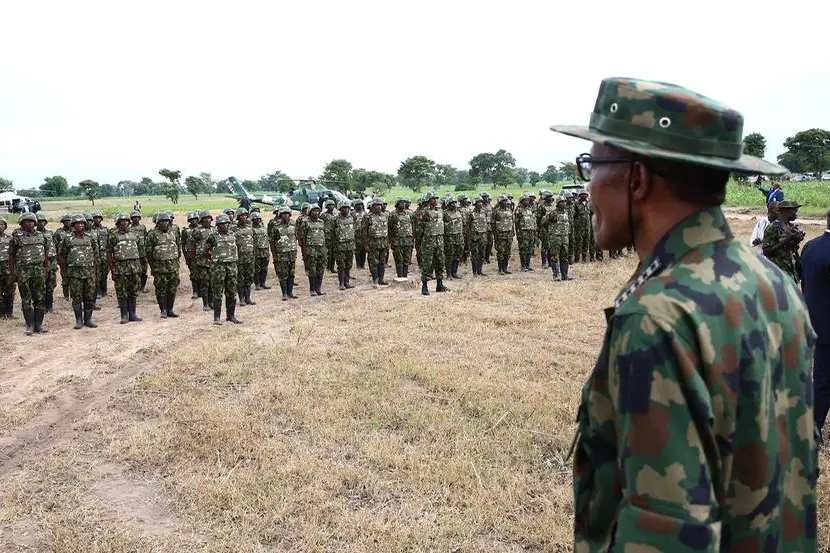PHOTO
Amnesty International on Friday called for the release of more than a dozen protesters jailed following 2020 rallies against police brutality in Nigeria, condemning what they said was a "resurgence" of the problem.
On October 20, 2020 police and soldiers opened fire on peaceful protesters at the Lekki tollgate in Lagos, clamping down on the largest anti-government demonstrations in Nigeria's modern history.
Three years on, Amnesty said at least 15 protesters among many arrested in 2020 were "still being arbitrarily detained -- the majority of them without trial" in Lagos, with some reporting they had been tortured.
"I am innocent. My life has been shattered. I need my liberty," Sodiq Adigun told the NGO, saying he had been detained without trial since 2020.
AFP has contacted the police for comment.
On Friday there was a heavy police presence as a few demonstrators gathered at the main site of the crackdown, calling for the release of those still in jail.
At previous memorial protests police have arrested demonstrators and fired tear gas.
Local media footage showed demonstrators paying their respects to the victims.
Security forces killed at least 12 demonstrators in Lagos in the 2020 shootings, Amnesty said, with more than 50 deaths across the country during the protests.
More people were killed in subsequent rioting and violence.
Lagos state government and the armed forces have long denied troops fired live rounds at the tollgate, but an independent panel ruled a "massacre" of unarmed protesters took place.
Amnesty also warned of a resurgence of police brutality and called for reform, saying police "routinely commit violations of human rights, including extrajudicial killings, harassment, arbitrary detention, and extortion with almost absolute impunity".
Isa Sanusi, director of Amnesty International Nigeria, said: "Any changes that followed the #EndSARS protests are fast disappearing, as police brutality is again becoming a daily part of life for people across Nigeria."
The #EndSARS protests erupted initially against police abuses, with the rallying name referencing the Special Anti-Robbery Squad (SARS), which was later disbanded.
The demonstrations spiralled into a broader protest to demand better governance and rights in Africa's most populous country.





















